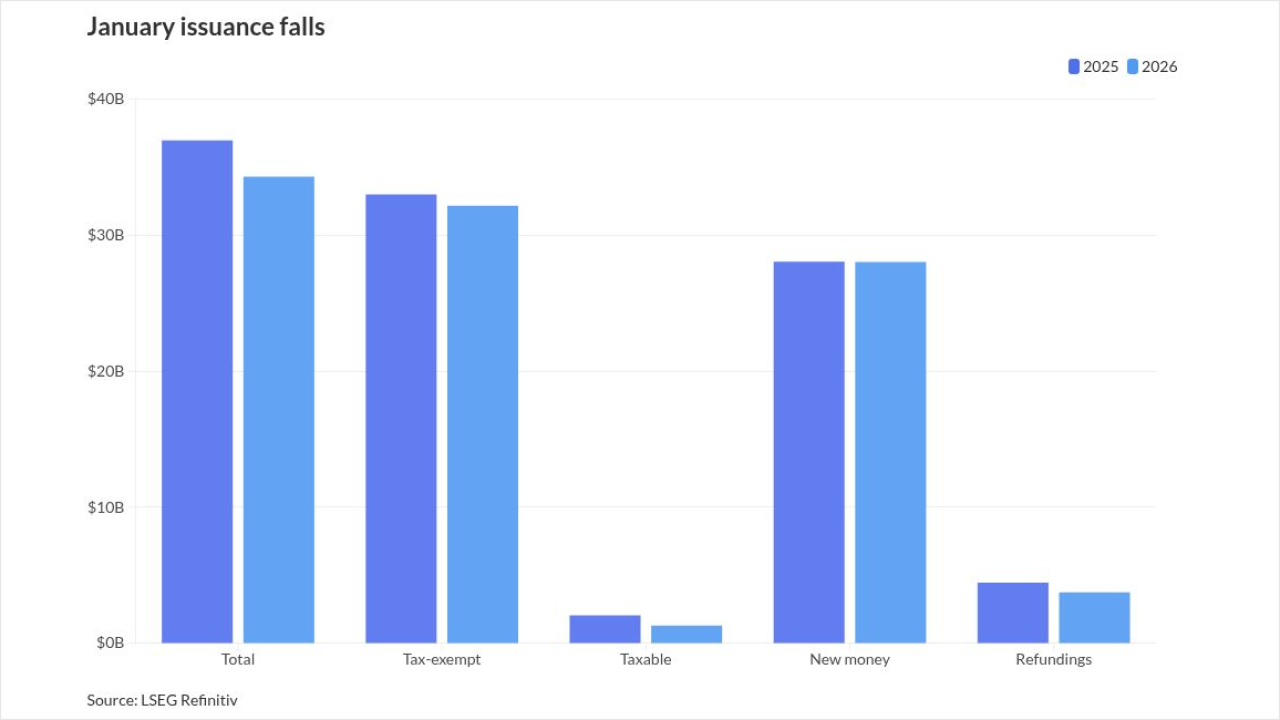
In record time since taking office, Puerto Rico Gov. Luis Fortuño yesterday signed legislation to help the commonwealth close its $3.2 billion deficit after lawmakers approved the measures at the start of the legislative session on Tuesday.
Administration officials worked on the financing bills over the weekend so that lawmakers could vote on the initiatives in their first day back in session. That speed is due in large part to the new governor's political party.
Fortuño, who took office on Jan. 2, and the island's legislative leaders are members of the New Progressive Party. Previous Gov. Anibal Acevedo Vila, a member of the Popular Democratic Party, often clashed with NPP House and Senate leaders, creating legislative gridlock.
Fortuño's signature yesterday alters the current fiscal reform bill of 2006 and will allow the central government to borrow money from the Government Development Bank for Puerto Rico, the island's financing arm, in order to meet operating expenses over the next two years, according to Angel Perez, vice president of the House Treasury and Financial Affairs Committee.
That flexibility will support the governor's $500 million local economic stimulus plan and allow the government to pay $700 million it owes to service providers, including nonprofit organizations.
"That will mean immediately a very significant economic stimulus injection into the economy," said GDB president Carlos Garcia.
In order to reimburse the bank for the $1.2 billion and potentially repay it for another $800 million it previously extended to the government in 2008, the Puerto Rico Sales Tax Financing Corp. will sell sales tax bonds secured by an additional one percentage point of the agency's dedication. Fortuño yesterday signed into law a bill to boost the corporation's portion of the island's seven-cent sales tax to two cents from one cent.
A fiscal advisory panel last week indicated that the additional sales tax revenue could support bond sales totaling $4 billion and that Puerto Rico may issue $1.4 billion of sales tax bonds over the next few years. Garcia said those figures are preliminary, with officials primarily looking towards financing the $1.2 billion in both the local market and on the U.S. mainland.
"The bonding capacity of providing another 1% will create bonding capacity beyond the $1.2 billion, but we're living in fairly difficult markets," Garcia said. "So we'll have to see what is the capacity that is out there, both in the U.S. market and in the local market, for those financings to occur."
Pricing of the sales tax bonds will depend on market conditions. The GDB has yet to select an underwriter on the transaction.
During the Acevedo Vila administration, NPP members criticized the practice of borrowing from the GDB to support cash-flow needs of the government. Perez and Garcia said the large $3.2 billion shortfall forces the current administration to look again towards the GDB to help meet immediate funding needs.
"Strategies like this would probably not be required if you were talking about $1 billion or more in a budget deficit in which you could take other measures in terms of expense reductions or other revenue-enhancing options to solve your budget deficit," Garcia said.
"But now talking about a budget deficit that is almost three times what was initially understood by almost everyone, that is the reason why in such a difficult environment you need to consider this option. But obviously it needs to be managed prudently and that flexibility is only provided with a window of time. It is not an open-ended proposition."
Standard & Poor's analyst Horacio Aldrete said the agency was anticipating that Puerto Rico would need to continue to rely on GDB loans to support operating expenses.
"The BBB-minus that we currently have on the commonwealth and the stable outlook assumes that the commonwealth will have to rely, at least for some time, on continued borrowing from the GDB," Aldrete said. "And I think the key will be on the timing of that window, and that is really what is giving the commonwealth the flexibly to implement a long-term solution."
Moody's Investors Service rates the credit Baa3 with a stable outlook.
In addition to the sales tax borrowing, the GDB will defease $1.1 billion of outstanding Puerto Rico Infrastructure Financing Authority bonds, after the governor yesterday enacted a bill to allow PRIFA to pay down bonds that are backed by proceeds of the sale of the island's telephone company in 2000. Garcia said the GDB will work on the transaction "immediately."
The defeasance will not only eliminate the PRIFA bonds but generate $350 million of funds to be used to help tackle the commonwealth's $3.2 billion deficit and also boost GDB liquidity. The value of the PRIFA fund that backs the $1.1 billion of debt has grown to roughly $1.7 billion today from $1.2 billion in 2000, according to Garcia.
"The value of the securities of that account have appreciated so much that now you can sell it and have some savings or have a remaining amount," he said. "Right now, it's around $1.7 billion."





